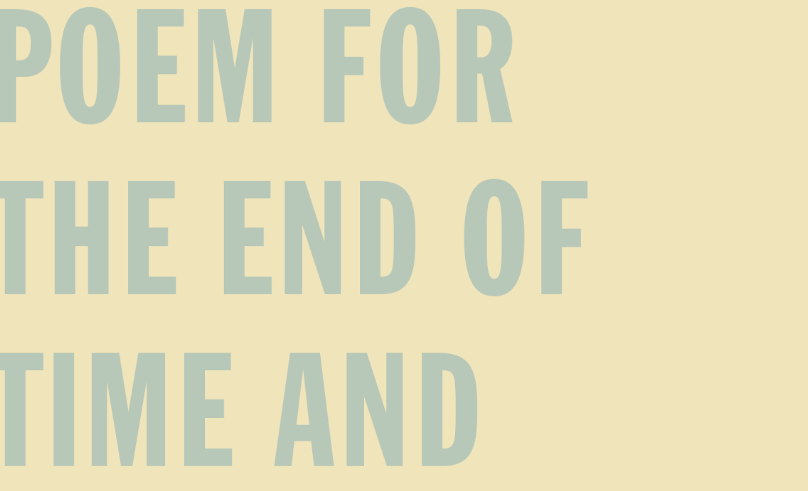Poem for the End of Time and Other Poems
Noelle Kocot
Wave Books, $12 (paper)
In her third book of poems, Noelle Kocot writes that “irony is the most wounded bird of all” and almost entirely declines its sour consolations, suggesting that ironic detachment, contemporary poetry’s usual hedge against emotional vulnerability, may have nothing to say about great loss. The losses in Poem for the End of Time and Other Poems are both personal—the long title poem is dedicated to the poet’s late husband—and collective, global, and historical. Although pain is often their point of departure, these poems don’t wallow; instead, they gamble on the hope that “our collective sadness is buzzing with opportunity.” In the title poem, which occupies the second half of the book, Kocot invokes the romantic exuberance of Crane and Whitman by celebrating Brooklyn, her birthplace and—per tradition—a figure for America as a whole. The poem connects country, borough, and marriage not through direct analogy but through a continuous verbal and emotional intensity. As the poem refuses the crutch of detachment, it also wards off a conversational tone by repeating a kind of ostinato—the phrase “my neighborhood” at the ends of successive lines, where it places emphasis on significant moments: “I am speaking this poem as I’m writing it my neighborhood / People are walking by wondering what I’m doing my neighborhood / When they ask I ask them to bless me my neighborhood.” The neighborhood suggests a site for the meeting of the individual and the collective, the stable and the mutable; it pulses under and unites the poem’s many tonal and allusive registers. Kocot’s poems are songs rather than stories. Both “Poem for the End of Time” and the wrenching and imagistic short lyrics of the book’s first half risk everything on the hope that a reader will accept their invitation to a heightened emotional state, an invitation that this book’s wit and beauty reward.







